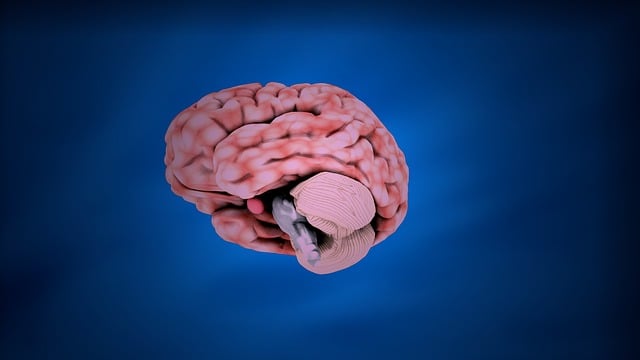Longmont Alcohol Abuse Therapy utilizes positive thinking through Cognitive Behavioral Therapy (CBT), culturally sensitive practices from the Mental Wellness Podcast Series, and personalized thinking exercises tailored to individual needs. They also promote mindfulness as a holistic approach, teaching clients to embrace the present moment for enhanced resilience against stress, depression, and anxiety. Progress tracking via goal setting and regular achievement assessments boosts motivation and confidence, reinforcing healthy behaviors and self-care routines. Mindfulness meditation and anxiety relief techniques integrated into daily regimens significantly improve recovery outcomes.
In the journey towards recovery from alcohol abuse, Longmont Alcohol Abuse Therapy emphasizes the power of positive thinking as a transformative tool. This article delves into the science behind optimistic mindset shifts and their profound impact on healing. We explore evidence-based strategies, such as Cognitive Behavioral Therapy, for reshaping thoughts. Additionally, we guide readers through creating personalized thinking exercises and integrating mindfulness practices to cultivate resilience and enhance overall well-being in Longmont Alcohol Abuse Therapy settings.
- Understanding Positive Thinking and Its Impact on Recovery
- The Role of Cognitive Behavioral Therapy in Shaping Mindset
- Designing Personalized Thinking Exercises for Lasting Change
- Integrating Mindfulness Practices for Enhanced Well-being
- Tracking Progress and Celebrating Milestones in Longmont Alcohol Abuse Therapy
Understanding Positive Thinking and Its Impact on Recovery

Positive thinking is a powerful tool that can significantly influence one’s journey towards recovery from alcohol abuse. Longmont Alcohol Abuse Therapy often incorporates this concept as a key component in their treatment programs. By fostering a mindset focused on optimism and gratitude, individuals in recovery can develop resilience against cravings and triggers. This shift in perspective allows them to view challenges as opportunities for growth rather than insurmountable obstacles.
The impact of positive thinking extends beyond individual therapy sessions. It empowers clients to engage in Self-Awareness Exercises, enabling them to recognize and challenge negative thought patterns. Moreover, culturally sensitive practices in mental healthcare, as explored in the Mental Wellness Podcast Series Production, play a crucial role in understanding diverse perspectives on well-being. This holistic approach ensures that positive thinking is tailored to each individual’s unique cultural background, enhancing its effectiveness in the recovery process.
The Role of Cognitive Behavioral Therapy in Shaping Mindset

Cognitive Behavioral Therapy (CBT) plays a pivotal role in shaping positive thinking and combating negative mindset patterns. This therapeutic approach has been extensively used in various mental health programs, including Longmont Alcohol Abuse Therapy. CBT helps individuals identify and challenge distorted thinking, replacing unhelpful cognitive behaviors with more adaptive ones. By teaching coping skills development, this therapy equips clients with effective strategies to navigate challenging situations.
In the context of Longmont Alcohol Abuse Therapy, CBT is designed to address underlying mental health issues and substance abuse problems. Through structured sessions, individuals learn to recognize negative thought traps, such as all-or-nothing thinking or catastrophizing, and replace them with more realistic and balanced perspectives. This process not only enhances overall well-being but also reduces the risk of relapse in alcohol-related cases. Moreover, mental health education programs designed around CBT can empower individuals to proactively manage their mental health, fostering a sense of self-reliance and resilience.
Designing Personalized Thinking Exercises for Lasting Change

Designing personalized thinking exercises is a key strategy for fostering lasting positive change in individuals seeking recovery from alcohol abuse, such as those who might turn to Longmont Alcohol Abuse Therapy. These exercises should be tailored to each person’s unique experiences, challenges, and goals. For instance, someone with a history of trauma may benefit from emotional regulation techniques, while another individual might focus on building resilience through affirmations and cognitive reframing.
By integrating these exercises into therapy sessions, mental health professionals can enhance their Risk Management Planning and Healthcare Provider Cultural Competency Training. This personalized approach not only improves the effectiveness of treatment but also empowers individuals to develop coping mechanisms that are sustainable in various aspects of their lives, moving towards a more balanced and fulfilling existence.
Integrating Mindfulness Practices for Enhanced Well-being

In today’s fast-paced world, where stress and anxiety often reign supreme, integrating mindfulness practices into daily routines has become a powerful tool for enhancing well-being. Longmont Alcohol Abuse Therapy centers recognize the profound impact of mindfulness on mental wellness, offering techniques that go beyond traditional talk therapy. By encouraging clients to focus on the present moment, these practices foster a deeper sense of calm and self-awareness, helping individuals navigate life’s challenges with greater resilience.
Mind over matter principles are at the heart of this approach, teaching individuals how to manage their thoughts and emotions more effectively. Regular mindfulness exercises, such as meditation and deep breathing techniques, have been shown to reduce symptoms of depression and anxiety. Moreover, integrating these practices into one’s routine can serve as a valuable risk assessment tool for mental health professionals, enabling them to support clients in cultivating positive thinking and overall mental wellness.
Tracking Progress and Celebrating Milestones in Longmont Alcohol Abuse Therapy

In Longmont Alcohol Abuse Therapy, tracking progress is a vital component of the healing process. It involves setting achievable goals and regularly assessing one’s achievements. This practice enables individuals to gain clarity on their journey towards recovery, fostering a sense of accomplishment. By celebrating milestones, whether it’s staying sober for a certain period or successfully managing triggers, clients can boost their confidence and motivation. These positive reinforcements play a crucial role in reinforcing healthy behaviors and maintaining focus on the self-care routine development for better mental health.
Moreover, integrating mindfulness meditation and anxiety relief techniques into one’s daily regimen can significantly enhance progress in Longmont Alcohol Abuse Therapy. These practices promote inner calm and emotional balance, empowering individuals to confront challenges head-on. As they navigate their recovery journey, celebrating each step forward becomes a powerful motivator, encouraging continued commitment to a healthier, sober lifestyle.
Incorporating positive thinking exercises into Longmont Alcohol Abuse Therapy offers a transformative path towards recovery. By understanding the power of mindset, utilizing evidence-based practices like Cognitive Behavioral Therapy, and designing personalized routines with mindfulness, individuals can cultivate lasting change. This holistic approach, tailored to each person’s unique journey, not only enhances well-being but also empowers individuals to navigate challenges with resilience, ultimately fostering a brighter and more fulfilling future.














